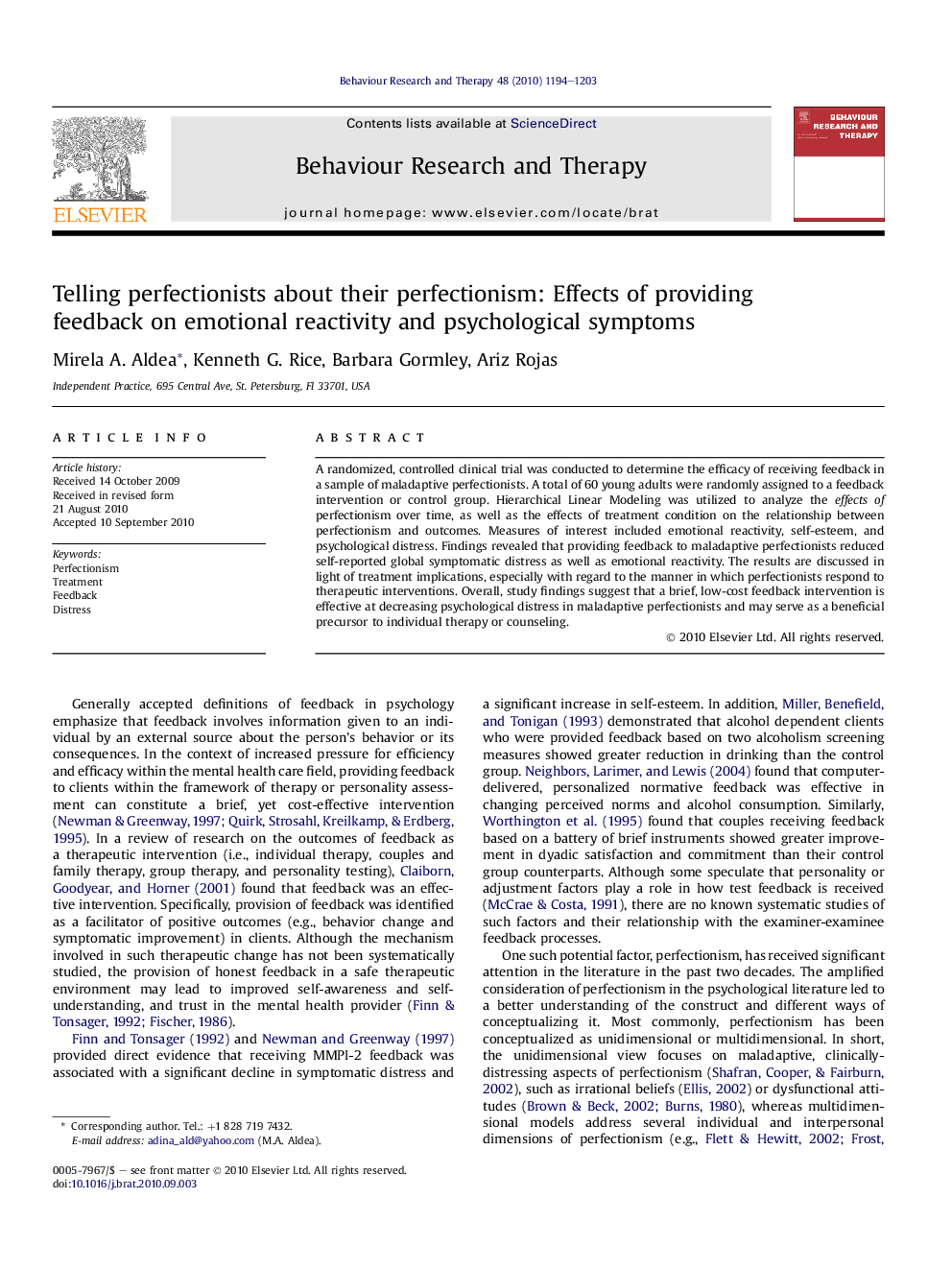| Article ID | Journal | Published Year | Pages | File Type |
|---|---|---|---|---|
| 902174 | Behaviour Research and Therapy | 2010 | 10 Pages |
A randomized, controlled clinical trial was conducted to determine the efficacy of receiving feedback in a sample of maladaptive perfectionists. A total of 60 young adults were randomly assigned to a feedback intervention or control group. Hierarchical Linear Modeling was utilized to analyze the effects of perfectionism over time, as well as the effects of treatment condition on the relationship between perfectionism and outcomes. Measures of interest included emotional reactivity, self-esteem, and psychological distress. Findings revealed that providing feedback to maladaptive perfectionists reduced self-reported global symptomatic distress as well as emotional reactivity. The results are discussed in light of treatment implications, especially with regard to the manner in which perfectionists respond to therapeutic interventions. Overall, study findings suggest that a brief, low-cost feedback intervention is effective at decreasing psychological distress in maladaptive perfectionists and may serve as a beneficial precursor to individual therapy or counseling.
